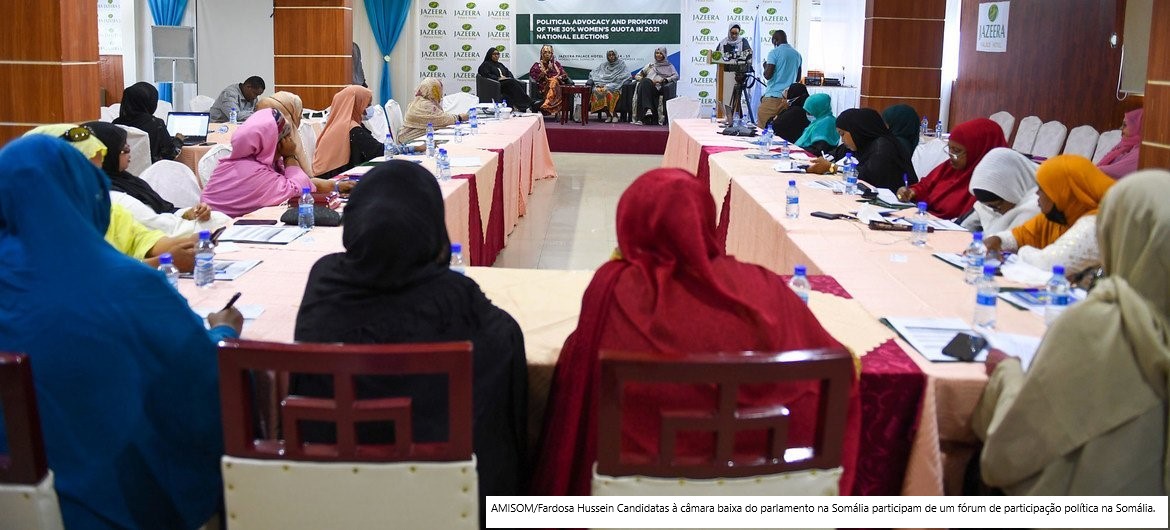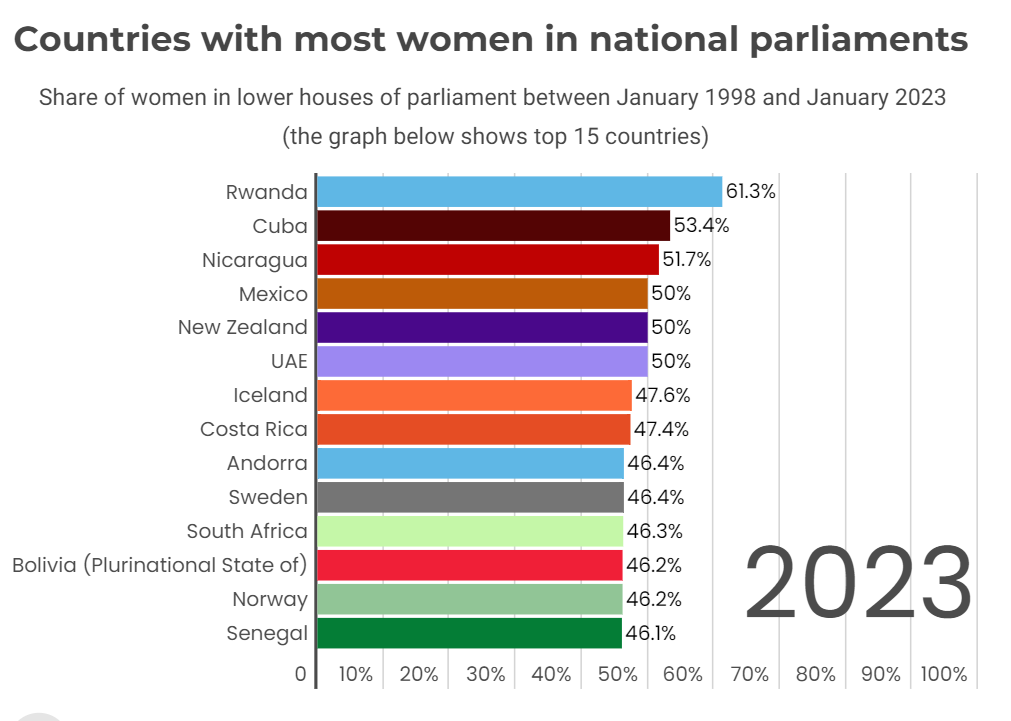For first time, women represented in all parliaments of the world

In its latest annual report, the global body dedicated to promoting peace through parliamentary diplomacy and dialogue, also said that women’s participation has never been as diverse as it is in many countries today.
The findings are based on data from the 47 countries that held elections last year.
These polls saw women take an average of 25.8 per cent of the seats available, representing a 2.3 percentage point increase, since elections were last held.
Smallest increase
Despite this positive data, IPU noted that it is nonetheless the smallest increase in women’s participation in six years. The 0.4 per cent rise means that the global share of women in parliamentary office, stood at 26.5 per cent, as the New Year dawned.
The other bad news is that at this rate, it will take another 80 years to reach gender parity in parliament, said Martin Chungong, IPU Secretary General:
“Currently, one of the foremost obstacles, is the climate of sexism, harassment, violence against women that we are witnessing across the world”, he said.
“It is a phenomenon that is pervasive across the world and it is not endemic to any particular region. And we can estimate that this is having a toll on the participation of women in political life.”
Women premiers exit early
The IPU chief referred to the resignations of New Zealand and Scotland premiers Jacinda Ardern and Nicola Sturgeon, saying that it was widely held that they had stepped down after being harassed.
Mr. Chungong also pointed to other IPU data showing pervasive and increasing trend of harassment, sexism and violence against women, that deters them from participating in the political processes in their countries.
Lesia Vasylenko, President of the IPU Bureau of Women MPs, said that every woman elected, “brings parliaments one step closer to becoming more inclusive and representative and it’s great to see much more diversity”.
But overall, she added, “progress is far too slow with half the world’s population still vastly under-represented. There is an urgent need to change this, to strengthen democracy everywhere.”
The President of the IPU, Duarte Pacheco, called on male colleagues in every parliament worldwide, “to work with their female counterparts to move forward and accelerate the pace of change.”
Some highlights
There were encouraging signs that progress is at least happening. Brazil saw a record 4,829 women who identify as Black, running for election, out of nearly 27,000 standing overall.
In the USA, a record 263 women of colour stood in the Congressional Midterms. And LGBTQI+ representation in Colombia, tripled, from two to six members of the Congress.
In France, 32 candidates from a minority background were elected to the new National Assembly, an all time high of 5.8 per cent of the total.

Notes:
The data in this table have been compiled by the Inter-Parliamentary Union on the basis of information provided by national parliaments.
Parliaments are classified according to the percentage of seats held by women in lower or single parliamentary chambers.
The figures correspond to the number of seats filled in parliament at the given time. The ranking may evolve over time based on updates received from national parliaments.
Violence against women in politics
He adds that this is a "widespread phenomenon around the world" and assesses that it is damaging women's participation in political life.
Martin Chungong also talked about the resignations of the Prime Ministers of New Zealand, Jacinda Ardern and Scotland, Nicola Sturgeon. He stated that it was widely accepted that they resigned after suffering from harassment.
The Inter-Parliamentary Union secretary general also pointed to other data showing a widespread and growing trend of harassment, sexism and violence against women that prevents them from participating in political processes in their countries.
Slow progress
The president of the Inter-Parliamentary Union's Office of Women Parliamentarians, Lesia Vasylenko, said that every elected woman "brings parliaments one step closer to becoming more inclusive and representative."
But overall, she added, "progress is very slow, with half the world's population still very much underrepresented." For the representative, there is an urgent need to change the scenario to strengthen democracy everywhere.
The president of the Inter-Parliamentary Union, Duarte Pacheco, called on male colleagues in all the world's parliaments, "to work with their counterparts to advance and accelerate the pace of change."
Last year, UN News published a series on violence against women in politics and spoke with Duarte Pacheco. At the time, he pointed out that democracies are not full by leaving 50% of the population out.
Some highlights
According to the data, there are encouraging signs that at least progress is happening. Brazil recorded a record 4,829 women who identify as black running for election, out of a total of nearly 27,000 candidates.
In 2018, Mozambique recorded 39.6% women in parliament. The country is also in the small group of 14 countries that have achieved gender parity in ministerial positions.
In the United States, a record 263 black women ran in the congressional midterm elections. And Lgbti+ representation in Colombia tripled from two to six members of Congress.
In France, 32 candidates from minority backgrounds were elected to the new National Assembly, an all-time record 5.8% of the total.
Six countries around the world now have gender parity, thanks to New Zealand's achievement last year. The list includes Cuba, Mexico, Nicaragua, Rwanda, and the United Arab Emirates as the top nations in the Inter-Parliamentary Union's ranking.
Rwanda is in first place, with women occupying just over 60 percent of parliamentary seats in the lower house. However, women still hold only 34.6% of seats in the upper house.



